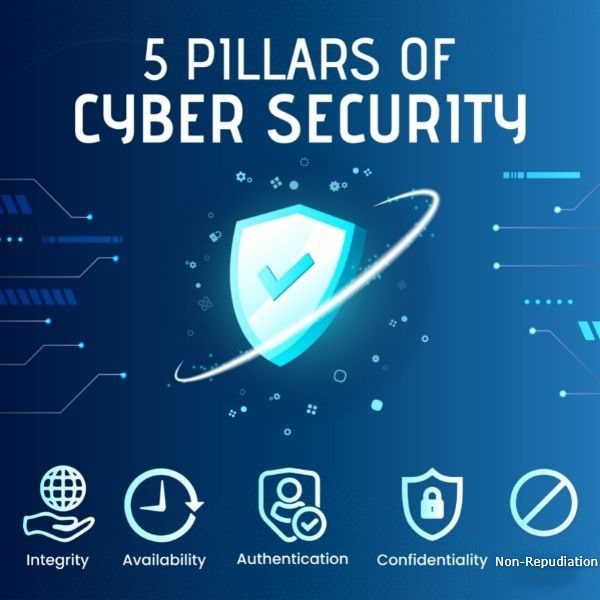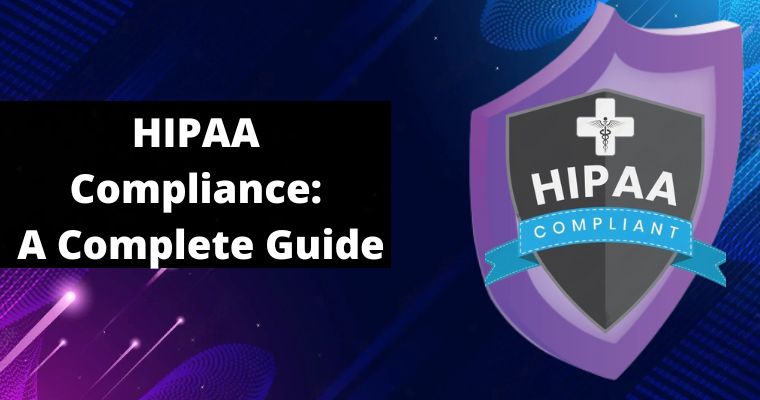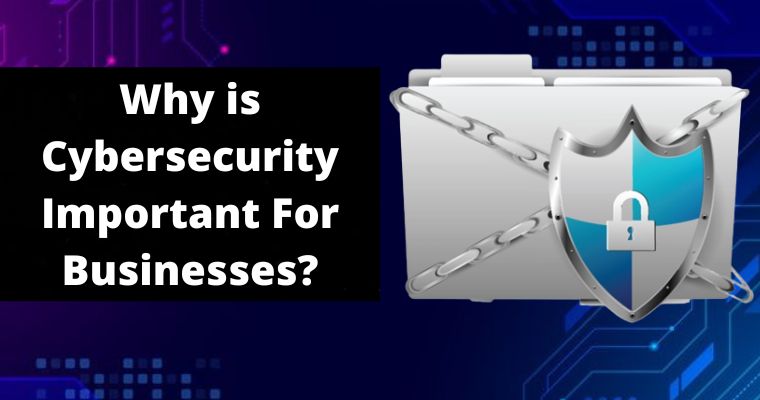Cybersecurity is protecting your data from cyber-attacks as we live more and more of our lives online, from communicating to shopping, playing games, banking, traveling, etc. The internet is an inseparable part of our lives.
Whether it’s on our phones, computers, or other smart devices, it’s an unfortunate truth that hackers, cybercriminals, troublemakers, etc., look for vulnerable targets. Hackers want your personal information and ask for ransom money.
Cybercrime is increasing day by day. Hackers continuously try to find loopholes in your security so that they can take advantage of your data. It is important to understand and put into practice the five pillars of cybersecurity to protect your data.
Table of Contents
What are the 5 Pillars of Cybersecurity?
In this article, I will explain all five pillars of cybersecurity in simple words so that you can understand those pillars even if you are from non-tech. Background. You can protect your data if you put into practice all these pillars.

The five pillars are:
- Confidentiality
- Integrity
- Availability
- Authenticity
- Non-Repudiation
Now I will help you to understand all these five pillars separately.
Confidentiality
Confidentiality is one of the most important pillars of cybersecurity. It is the assurance that your data won’t be disclosed to anyone(unauthorized groups, institutions, or devices). Confidentiality is a vital part if it comes to securing your data.
If your data is transferred from one place to another, it is transmitted in encrypted form. Only the receiver and sender can understand that information. It will be very difficult for any third party to steal your data.
Let’s take an example here: if you are talking to your friend on WhatsApp, then your messages are encrypted. No third party can read your messages.
Only you and your friend can understand those messages properly. Now imagine someone else is reading all those messages.
Won’t that be disastrous for you? You are sharing your personal information, and now a third party also has that personal information.
That third party can take advantage of it. You can be asked for many or any other favor. That is why confidentiality is very important.
If the confidentiality of your messages is maintained, then your personal information will be kept safe. You can do anything you want to without any worries.
So confidentiality controls access to your data through passwords like encryption and biometric scan.
Non- Repudiation
Non-Repudiation is another important element that assures that your data delivery is done to the sender only. With the help of this, the receiver of the information can also verify the sender.
You can open the logs provided by the information security system to provide proof of sender and receiver. No third party can control the sending and receiving of your information.
Only the two of you can make any changes to the information you are sending to each other.
Now let’s take an example. This example will help you better understand the second pillar of cybersecurity- Non-Repudiation.
You want to talk to your friend, so you just messaged your friend. And the message is sent to someone else instead of your friend.
Now you can imagine the importance of this pillar. This assures that your message will only be sent to your friend, not to someone else.
Now come to the second example: imagine you and your friend are talking and sharing your personal information.
Suddenly a third person came in between your chats and changed your information, denying you to send messages to your friend. Won’t you get angry over this?
Non- Repudiation helps you with this. It assures that no third party can deny sending or receiving any data.
Let’s come to the third example that will help you understand another work of Non- Repudiation.
Suppose something happened to you, and now you want to get the sender’s details. Non-Repudiation keeps all the proof of the sender and receiver of the information. You can check this.
So non-Repudiation pillar keeps your data safe in three ways:
- Maintaining proof of sender and receiver of the information.
- No third party controls the sending and receiving of data.
- Assures the data is sent to the right person.
Authenticity
Authentication protects your data from hackers and ensures that users provide proof of their authority over the data. If they are authorized to access the data, they can only access it.
It is important to validate the transit and origin of the information. Assuring authorization includes passwords, biometric data, and many other methods.
Let’s take an example to understand authenticity better.
Let’s consider the example of Instagram. Many of you use Instagram. You login into your account with your password and username.
Now suppose, Instagram gives access to your account to someone else without even asking for a password and username. And that person steals your data, including your photos and other things.
How will you feel after all this? Bad, Right? Some of you can even consider suicide.
But this pillar of cybersecurity “authenticity” looks for all these things. It keeps your information inaccessible to unauthorized institutions and devices. Your data can only be accessed if the person has authority over your data.
Availability
Availability means the person authorized to access the data can access it anytime without hassle. It assures you that the system will be fully functional no matter what happens.
You can access your data anytime in a comfortable manner. Having resources makes it possible to access information comfortably.
Availability requires resources to maintain stability and permanent access to the data through updates and fast maintenance.
Let me give you an example of this.
Many of you use online banking methods. Let’s consider that all your transactions happen through online banking methods. You want to access your transactional history and balance in your account.
Now suppose that the bank allows you to access that information for particular hours of the day. What will you feel? It is difficult to explain that in words.
So to prevent this, companies try to give access to your information whenever you need it(if you are authorized over that data).
It is important to remember that something happens like a fire, blackouts, etc. Then your data can become vulnerable to hackers.
Integrity
The information you send to someone is always kept in its original form. The message should not be changed during the transmission process.
It keeps your data safe from being changed by unauthorized persons. An efficient security system is made to keep your data in its original form.
No third party can change your information without authorization. If your data changes without any authority, it simply means that someone has interfered with your data.
An example of integrity is.
Suppose you are using Instagram and chatting with your friends. Any third party interrupted you and changed your messages before being received by the person you were sending a message to. It can cause many problems between you and the person you talked to.
Let’s take a second example.
You are using your credit card, and suddenly your credit card stops working. When you ask the authorities about this, they say your information is changed. How will you react to that? For sure, you will respond aggressively.
So to prevent these kinds of incidents, data integrity is important. It keeps your data in its original form and hinders unauthorized people from making changes to it.
Above mentioned points are the pillars of cybersecurity.
How do 5 Pillars Help in Protecting Data?
If there is any loophole in your cybersecurity that can :
- Help the third party to make any changes to your data
- Can make any changes to the information sent by the sender
- Can disclose your data to unauthorized parties
- can make unauthorized parties access your data.
If any of the things mentioned above can happen, you can find the threats, and with the help of these pillars, you can assure your customers that anyone can’t steal their data.
If all these pillars of your cybersecurity are strong, then you can work smoothly.
These pillars enable the third party to do anything with data without authorization.
I hope this article will help you understand all five pillars of cybersecurity that make your data safe from hackers.



